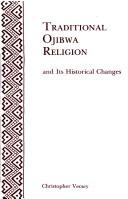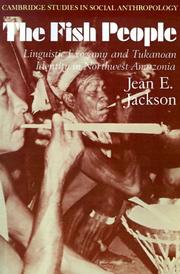| Listing 1 - 10 of 157 | << page >> |
Sort by
|
Book
ISBN: 0903114038 Year: 1983 Publisher: London : Minority rights group,
Abstract | Keywords | Export | Availability | Bookmark
 Loading...
Loading...Choose an application
- Reference Manager
- EndNote
- RefWorks (Direct export to RefWorks)
Book
ISBN: 0520046706 9780520046702 Year: 1983 Publisher: Berkeley (Calif.): University of California,
Abstract | Keywords | Export | Availability | Bookmark
 Loading...
Loading...Choose an application
- Reference Manager
- EndNote
- RefWorks (Direct export to RefWorks)
Indians of Mexico --- Indians of Mexico --- Tzotzil Indians --- Chiapas (Mexico)
Book
ISBN: 0860542238 9780860542230 Year: 1983 Volume: 174 Publisher: Oxford : BAR,
Abstract | Keywords | Export | Availability | Bookmark
 Loading...
Loading...Choose an application
- Reference Manager
- EndNote
- RefWorks (Direct export to RefWorks)
Indians --- Calendar --- Indian calendar.
Book
ISBN: 2266012436 Year: 1983 Publisher: Paris : Plon,
Abstract | Keywords | Export | Availability | Bookmark
 Loading...
Loading...Choose an application
- Reference Manager
- EndNote
- RefWorks (Direct export to RefWorks)
Book
Year: 1983 Publisher: Toronto : University of Toronto Press,
Abstract | Keywords | Export | Availability | Bookmark
 Loading...
Loading...Choose an application
- Reference Manager
- EndNote
- RefWorks (Direct export to RefWorks)
The devastating impact of the policies and programs of the federal government on the Indian people of Canada is illustrated forcefully in this important and revealing study of the Fort Hope Band. Over a period of seven years, the authors looked at the communities of Webequie, Summer Beaver, Lansdowne House, and Fort Hope in the far reaches of Northwestern Ontario seeking answers to such questions as: How do a people become wards of the state? How does a government work against its stated objectives? How do ghettos appear in the middle of a pristine wilderness? They found that, starting in the early '60s, as government involvement in band life increased, dependency on the government also increased - to the point where today government programs provide 90 percent of the band members' income. Now dependent on programs with can be curtailed at the governments' will, the band is in an extremely vulnerable position. The authors suggest that this is also true of other bands across the country and offer suggestions for constructive change.

ISBN: 0871691523 Year: 1983 Volume: vol 152 Publisher: Philadelphia (Pa.): American philosophical society
Abstract | Keywords | Export | Availability | Bookmark
 Loading...
Loading...Choose an application
- Reference Manager
- EndNote
- RefWorks (Direct export to RefWorks)
Indians of North America --- -Indians of North America --- -Ojibwa Indians --- -American aborigines --- American Indians --- First Nations (North America) --- Indians of the United States --- Indigenous peoples --- Native Americans --- North American Indians --- Algic Indians --- Anishinabe Indians --- Bawichtigoutek Indians --- Bungee Indians --- Bungi Indians --- Chipouais Indians --- Chippewa Indians --- Lac Courte Oreilles Indians --- Ochepwa Indians --- Odjibway Indians --- Ojebwa Indians --- Ojibua Indians --- Ojibwauk Indians --- Ojibway Indians --- Ojibwe Indians --- Otchilpwe Indians --- Otchipwe Indians --- Salteaux Indians --- Saulteaux Indians --- Algonquian Indians --- Missions --- -Religion and mythology --- Religion and mythology --- Culture --- Ethnology --- -Missions --- Ojibwa Indians --- Ojibwa mythology --- Mythology, Ojibwa --- Religion --- Chippewas (Indiens). Vie religieuse. --- Chippewa-Indianen. Godsdienstig leven.
Book
ISBN: 2857920180 9782857920182 Year: 1983 Publisher: Lyon Fédérop
Abstract | Keywords | Export | Availability | Bookmark
 Loading...
Loading...Choose an application
- Reference Manager
- EndNote
- RefWorks (Direct export to RefWorks)
Ethnology. Cultural anthropology --- Sonora --- Yaqui Indians --- Indians of Mexico --- History --- Government relations --- -Indians of Mexico --- -Yaqui Indians --- -Hiaque Indians --- Hiaqui Indians --- Cahita Indians --- Indians of North America --- Indigenous peoples --- Meso-America --- Meso-American Indians --- Mesoamerica --- Mesoamerican Indians --- Pre-Columbian Indians --- Precolumbian Indians --- Ethnology --- History. --- Government relations. --- -Government relations --- Indians, Treatment of --- Hiaque Indians --- Yaqui Indians - History --- Yaqui Indians - Government relations --- Indians of Mexico - Mexico - Sonora (State) - History --- Indians of Mexico - Government relations

ISBN: 0511621906 0521239214 0521278228 Year: 1983 Publisher: Cambridge : Cambridge University Press,
Abstract | Keywords | Export | Availability | Bookmark
 Loading...
Loading...Choose an application
- Reference Manager
- EndNote
- RefWorks (Direct export to RefWorks)
The Bará, or Fish People, of the Northwest Amazon form part of an unusual network of intermarrying local communities scattered along the rivers of this region. Each community belongs to one of sixteen different groups that speak sixteen different languages, and marriages must take place between people not only from different communities but with different primary languages. In a network of this sort, which defies the usual label of 'tribe', social identity assumes a distinct and unusual configuration. In this book, Jean Jackson's incisive discussions of Bará marriage, kinship, spatial organization, and other features of the social and geographic landscape show how Tukanoans (as participants in the network are collectively known) conceptualize and tie together their universe of widely scattered communities, and how an individual's identity emerges in terms of relations with others. As theoretically challenging as it is unique, the Tukanoan system bears on a wide range of issues of current anthropological concern, such as how to analyze open-ended regional systems in small-scale societies, ideal versus actual patterns of behaviour, identity as both structure and action, and indigenous use of multiple, even conflicting, models of social structure. Professor Jackson's thoughtful discussions also extend to broader social scientific issues concerning the relation of language to culture, the presence or absence of individualism in pre-state societies, the nature of ethnic boundaries, the interplay between observation of behaviour and its interpretation (on the part of both native and anthropologist), and the achievement of flexibility and self-interested goals while applying seemingly rigid social structural principles.
Tucano Indians --- Barasana Indians --- Indians of South America --- American aborigines --- American Indians --- Indigenous peoples --- Barasano Indians --- Waimaja Indians --- Waimaha Indians --- Tukano Indians --- Social life and customs. --- Ethnology --- Social Sciences --- Anthropology
Book
ISBN: 9783257211009 Year: 1983 Publisher: Frankfurt am Main : Diogenes,
Abstract | Keywords | Export | Availability | Bookmark
 Loading...
Loading...Choose an application
- Reference Manager
- EndNote
- RefWorks (Direct export to RefWorks)
Death --- Death. --- Indians of Mexico --- Indians of Mexico. --- Mexico --- Mexico.
Book
Year: 1983 Volume: 6 Publisher: Frankfurt am Main : Das Museum,
Abstract | Keywords | Export | Availability | Bookmark
 Loading...
Loading...Choose an application
- Reference Manager
- EndNote
- RefWorks (Direct export to RefWorks)
Guayaki Indians. --- Mbya Indians. --- Guayaki (Indiens) --- Mbya (Indiens)
| Listing 1 - 10 of 157 | << page >> |
Sort by
|

 Search
Search Feedback
Feedback About UniCat
About UniCat  Help
Help News
News